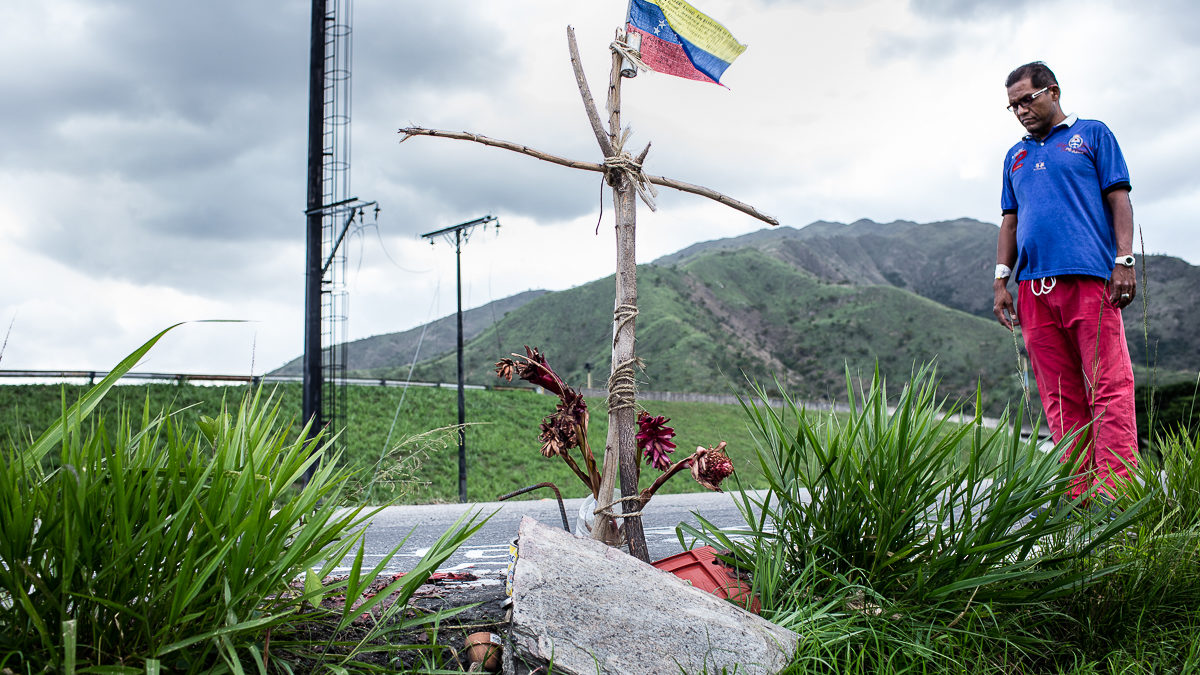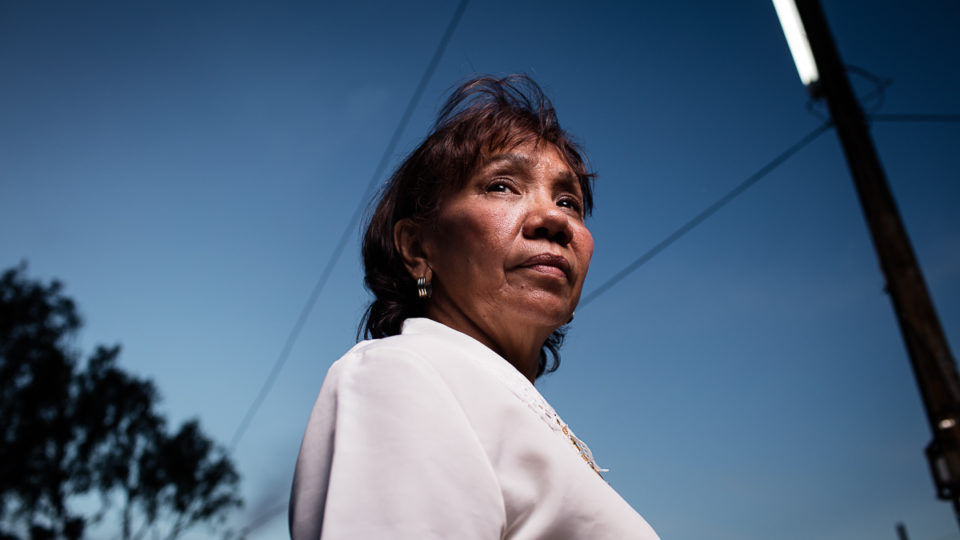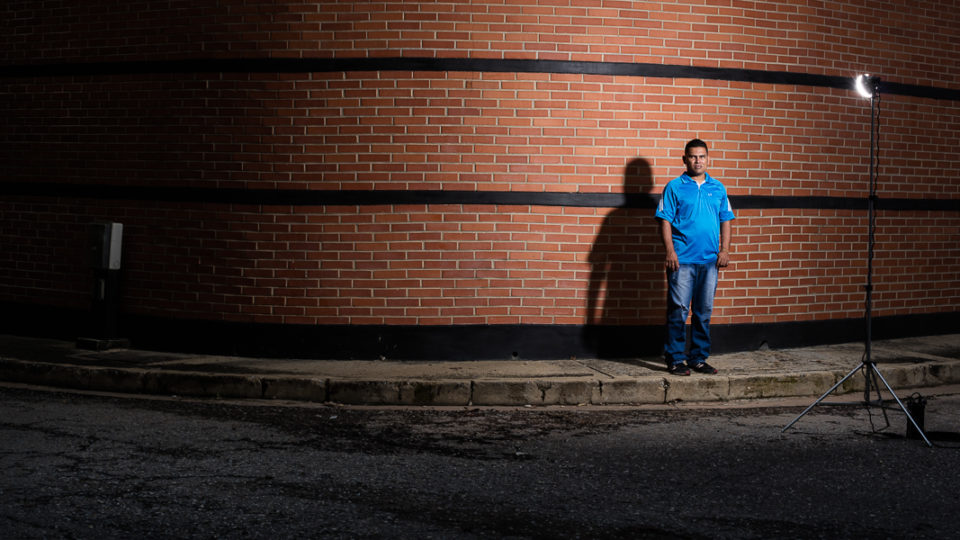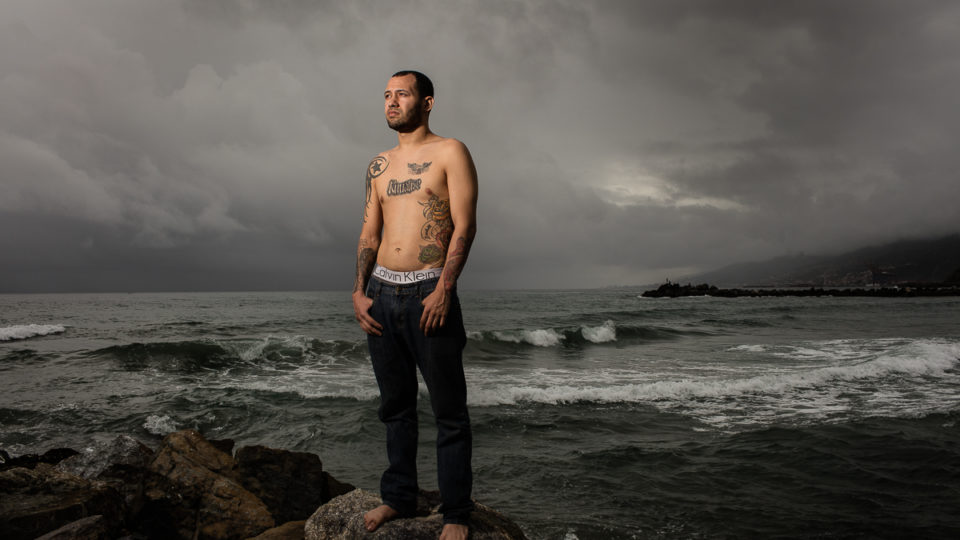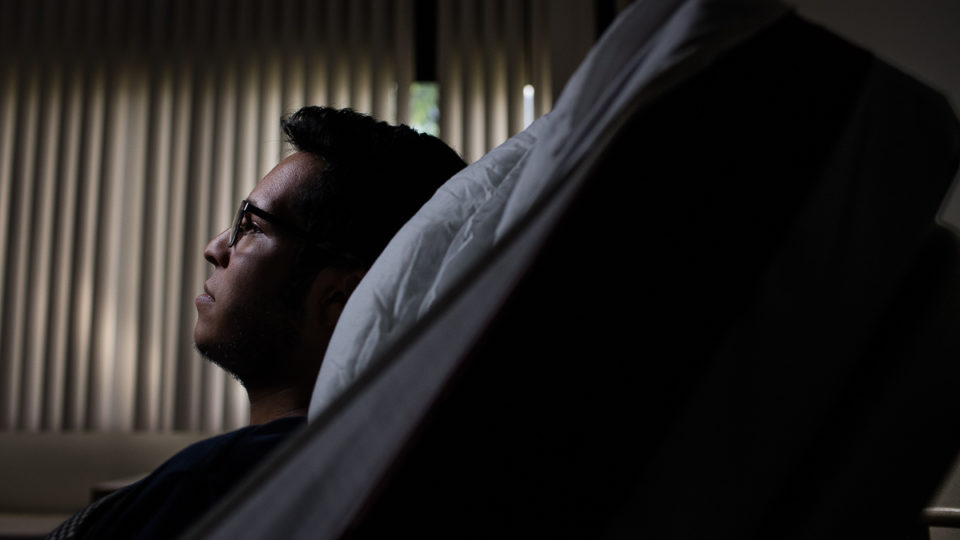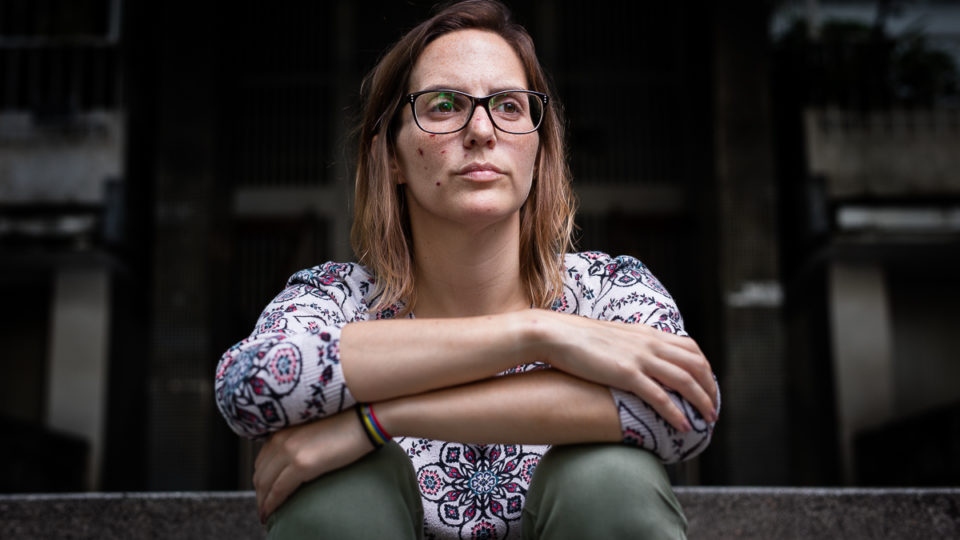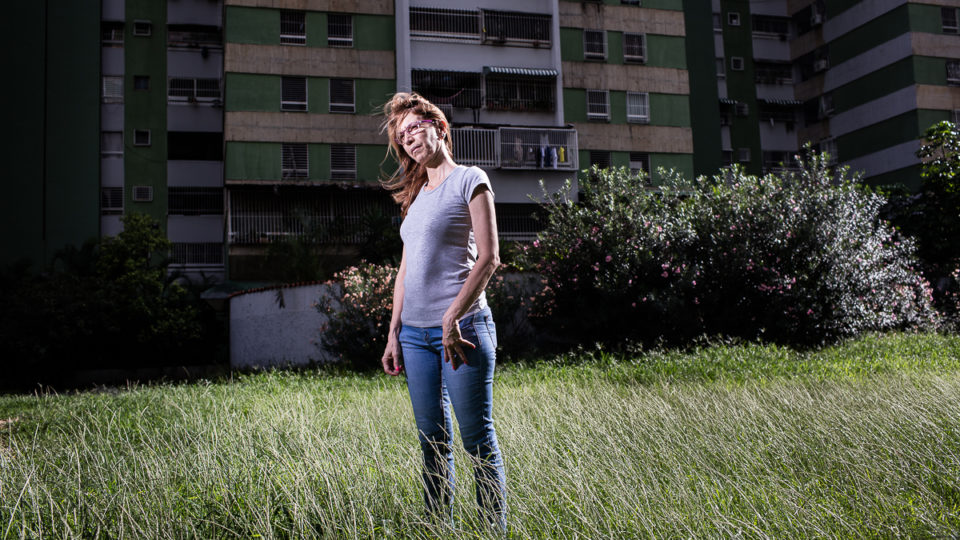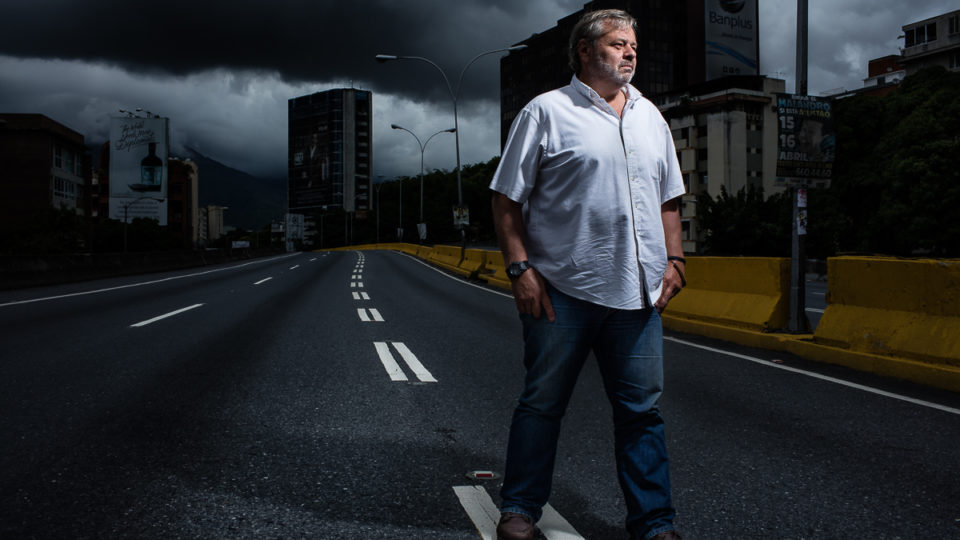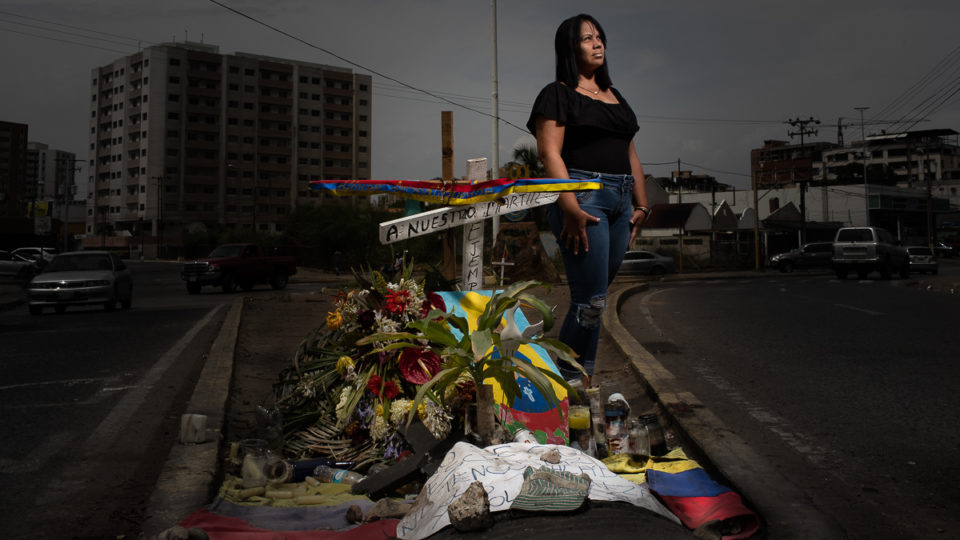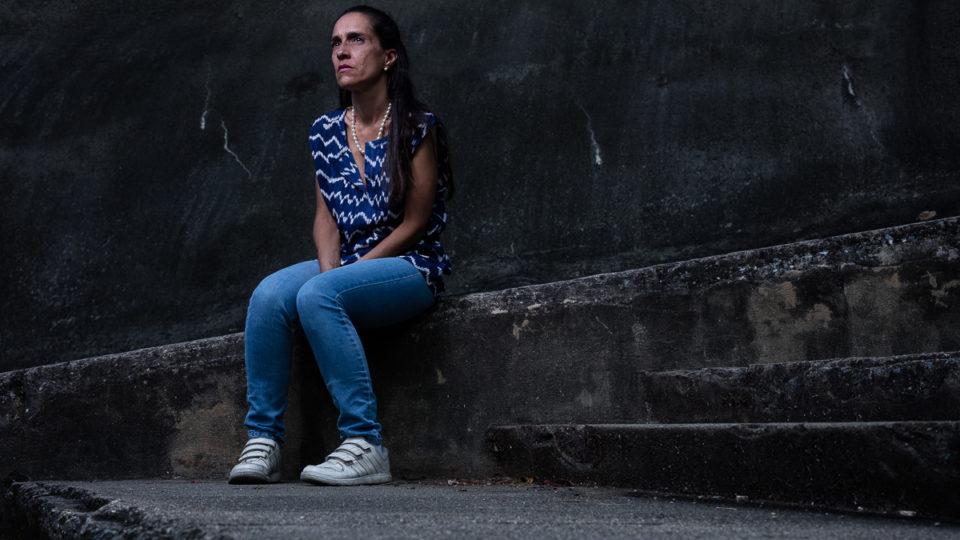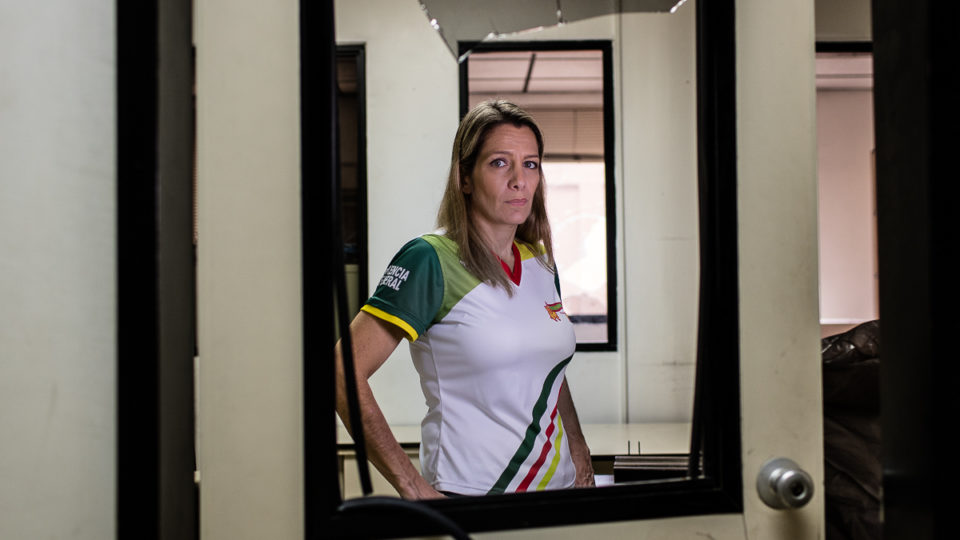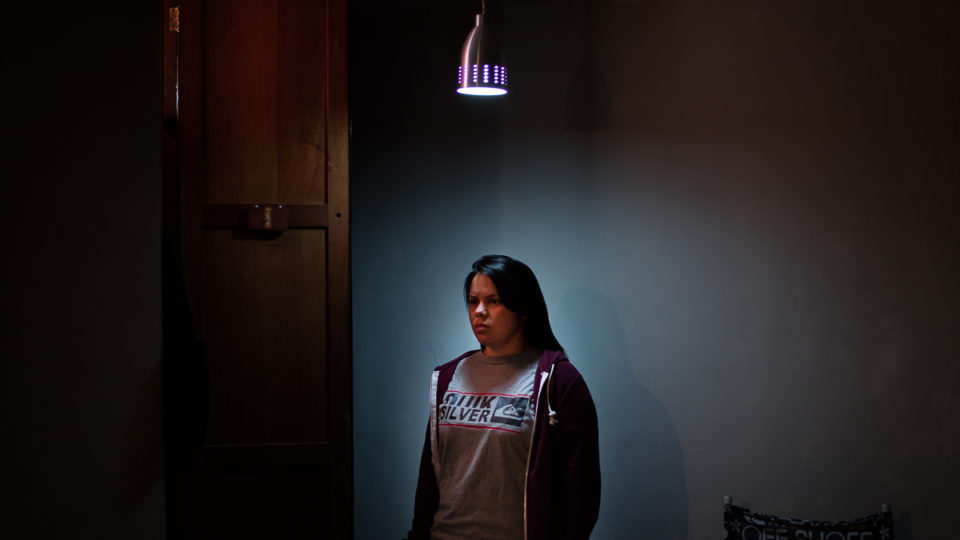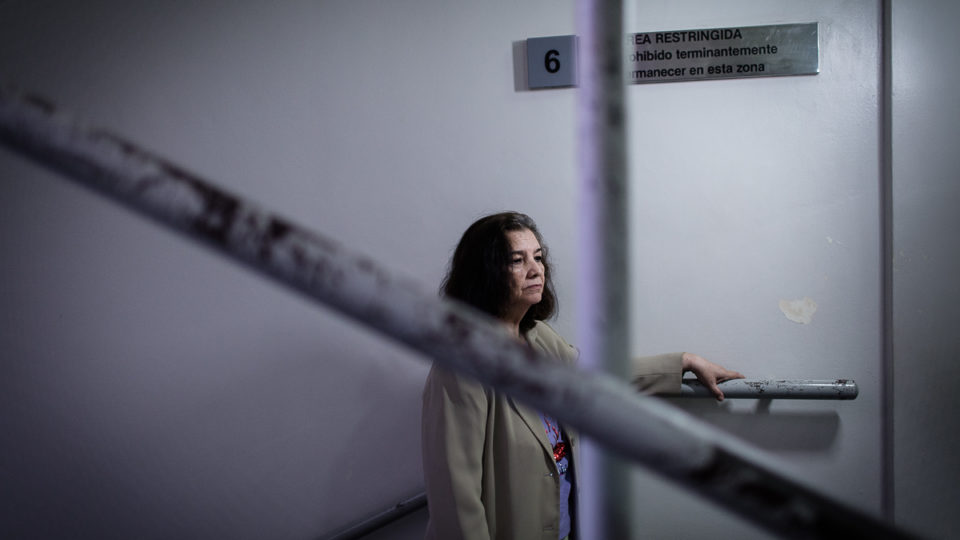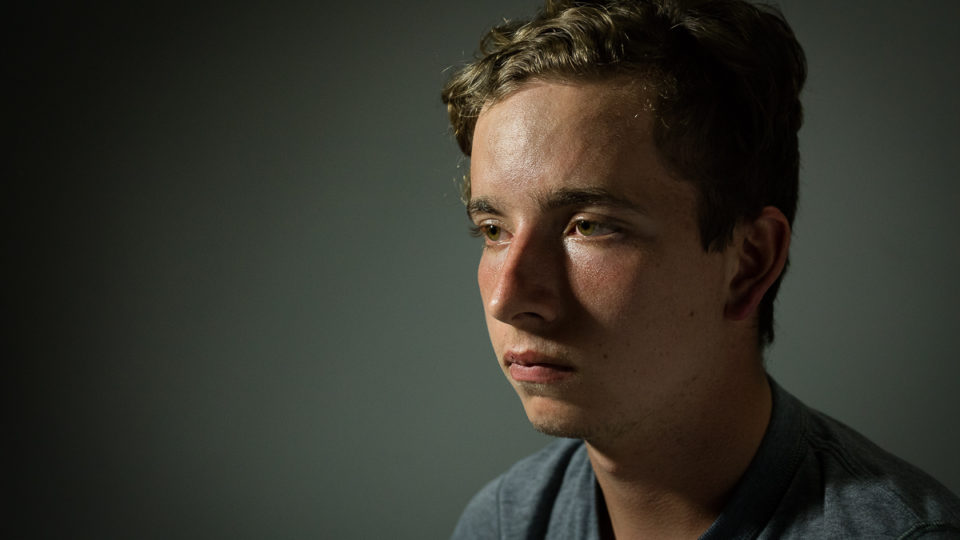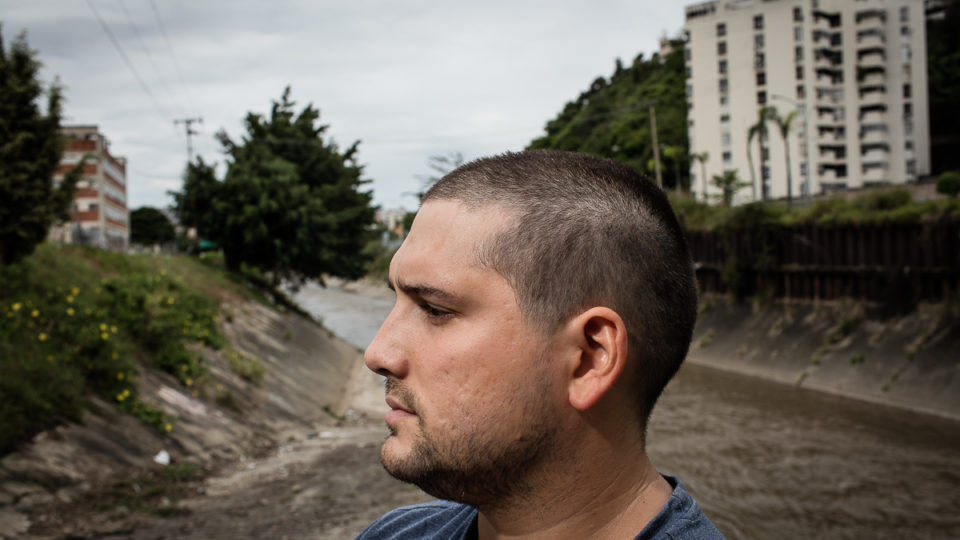Testimonies 2017
“I’m crying myself dry”
Héctor Lugo
“I heard an uproar in the street outside my bedroom window. I was resting because I’d been on call. I leant out and they shouted at me: ‘Get moving, Héctor! El Gordo is in a really bad way’. There were about seventy people, some crying. They’d found out through the WhatsApp group we’d set up to discuss food: El Gordo had been shot. They didn’t let me drive my own car to the clinic, so I knew it was serious, really serious.
That day I got home from my shift at two in the afternoon and Hecder (20) was in my room, on the computer, chatting. His friends called him at three.
‘Blessings, Dad. I’ll be back soon’.
‘Where are you going? It’s getting ugly out in the street’.
‘Don’t worry, Dad. I’m not going far and I’ll be right back’.
What I saw in the video keeps me awake at night, the kids trying to save him while he lies injured on the ground because they’d shot him in the head. The National Guard supresses the march even further and throws bombs at them, near his almost dead body. Then an officer appears and shoots him point blank in the stomach. That’s what really keeps me awake.
When I arrived at the clinic, I peered through a crack while they stuck tubes in him, and saw how bad he looked. He’d lost brain matter. The specialists looking after him told me, ‘We’re going to be honest with you because you’re a doctor and we can’t lie to you: on a scale of one to ten, your son’s chances of survival are a three’. I spent the night in shock, traumatized. They let us stay with him, we only left him for brief moments.
At 9 in the morning on May 5th, I was interrupted while giving a statement: ‘Señor Héctor, Señor Héctor, come quickly’. Hecder had suffered a heart attack. He died. I didn’t finish my statement. The pain was very strong. I had two children, now I’ve only got one left, a 25-year-old who studies psychology. Hecder became the 36th person killed during the protests.
I need justice to be done.
I always hear on the official TV channels that ‘no matter where deaths occur, the cases will be investigated and those responsible will be turned over to the Public Ministry to be tried’. So it surprises me that this hasn’t happened with my son’s murder. The district attorney, who was at the scene and collected all the evidence, tells me that the National Guard officer who acted that day still has not appeared in court.
I wonder whether the officer who shot him in the head was the same one who then came to finish him off, or if they were two different people. There were only thirty officers present that day. Name and surname, that’s what I want. I trust that, when the assassins are found and tried, the other officers will realize that what they’re doing is wrong and attacks against civilians will decline.
I took good care of him and I asked him not to go out protesting, because I knew it was so violent. But he went without telling me. Had I known he was protesting, I would have gone, found him and dragged him back by a leash. He wanted to study Civil Engineering or Criminology. He was preparing to be accepted for either. He’d wake up early, lift weights, go jogging and then he’d help me with the house I was building. As much as he liked to buy clothes, he’d give them away: he’d always help out friends who didn’t have anything to wear to a party.
I’m seeing a therapist for the first time in my life. I feel guilty. I didn’t have enough authority to stop him going and I didn’t go with him. I knew that it was ugly in the street. I should have been firm. I had a bad feeling about it, but he had his convictions. I’ve cried so much that I’ve got no tears left. I’m tearing myself up inside. If I had tears it would be a relief, but I’ve cried myself dry.
My wife and daughter are Christian and that gives them strength, but I lock myself away in my room to remember him. The therapist told me I need to adapt, that no one can fix the death of my son, that I can’t let myself die because that’s unfair to the living, and that I need to ask God for justice. I know that I’ll feel calmer if those responsible are convicted… at least a little.
We used to share my room. I work the night shift and like to have the air con on, but my wife can’t stand the cold. He and I used to sleep together. His room was only where he kept his stuff. The San Diego mayoralty covered all the medical bills and, because I used to work for CORPOELEC, the state power corporation, the insurance covered the funeral and burial. Even though I now work for the Ministry for Health, I’ve got no insurance from them.
I studied and got my degree under Chavism. I was a Chavista, but in the moment when I buried my son I buried Chavism too. Now I’m seen as a traitor, but they’re not the ones who had a son killed. No one from the government has taken an interest, because he was killed in an opposition protest. They haven’t even been diplomatic. What hope have I got if the very people I believed in are the ones who killed my son? Part of my family is Chavista, and we had been divided, but now we are united in mourning. I need the president to read this.
I’m going to miss my son.”
Héctor Lugo (50), Chemistry Technician, Technician in Thermoelectric Power Plants, Community Doctor, General Doctor at the Sector 7 Integral Diagnosis Center, Los Guayos, Carabobo. Father of Hecder
Lugo Pérez.
